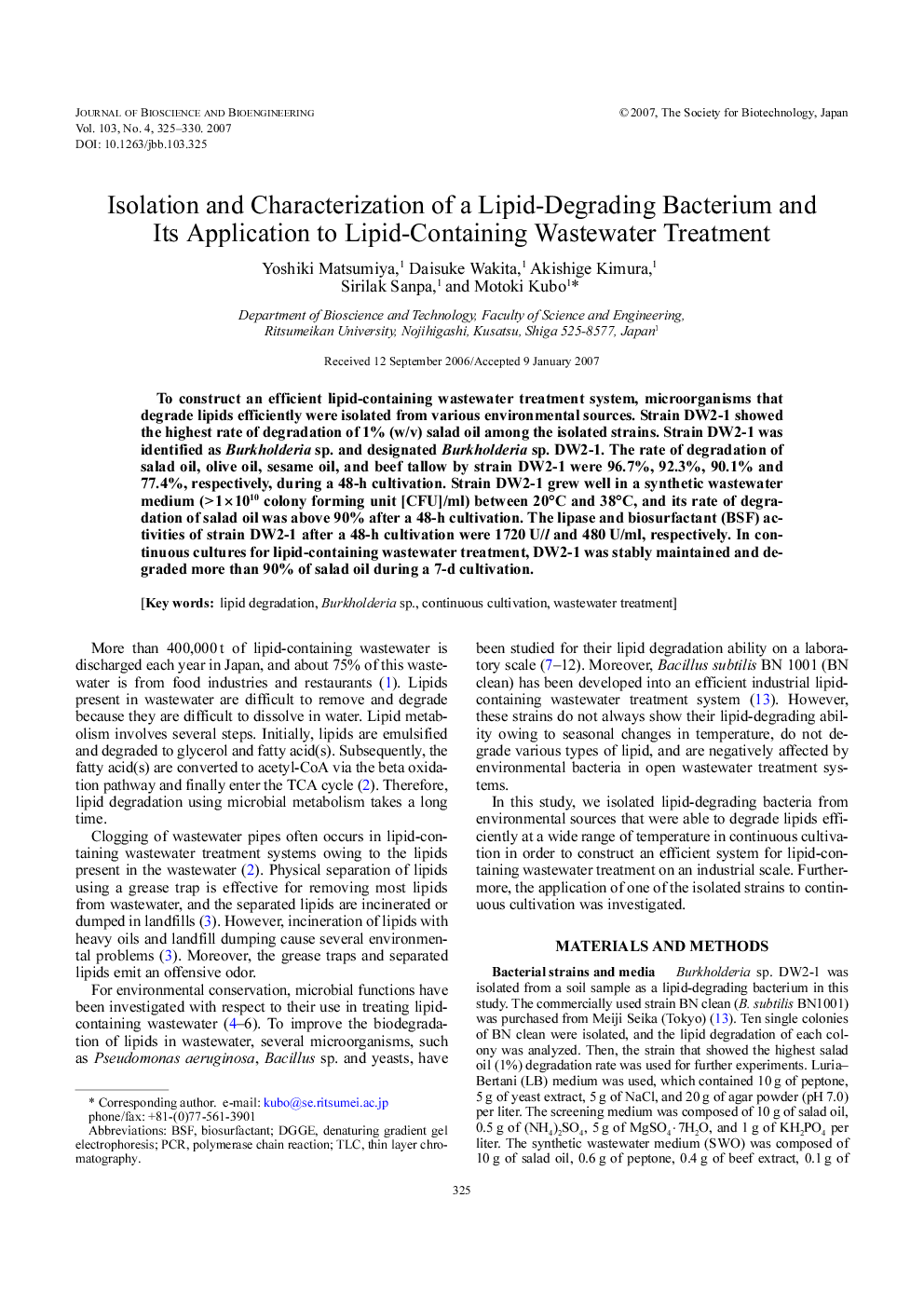| Article ID | Journal | Published Year | Pages | File Type |
|---|---|---|---|---|
| 22278 | Journal of Bioscience and Bioengineering | 2007 | 6 Pages |
To construct an efficient lipid-containing wastewater treatment system, microorganisms that degrade lipids efficiently were isolated from various environmental sources. Strain DW2-1 showed the highest rate of degradation of 1% (w/v) salad oil among the isolated strains. Strain DW2-1 was identified as Burkholderia sp. and designated Burkholderia sp. DW2-1. The rate of degradation of salad oil, olive oil, sesame oil, and beef tallow by strain DW2-1 were 96.7%, 92.3%, 90.1% and 77.4%, respectively, during a 48-h cultivation. Strain DW2-1 grew well in a synthetic wastewater medium (>1×1010 colony forming unit [CFU]/ml) between 20°C and 38°C, and its rate of degradation of salad oil was above 90% after a 48-h cultivation. The lipase and biosurfactant (BSF) activities of strain DW2-1 after a 48-h cultivation were 1720 U/l and 480 U/ml, respectively. In continuous cultures for lipid-containing wastewater treatment, DW2-1 was stably maintained and degraded more than 90% of salad oil during a 7-d cultivation.
